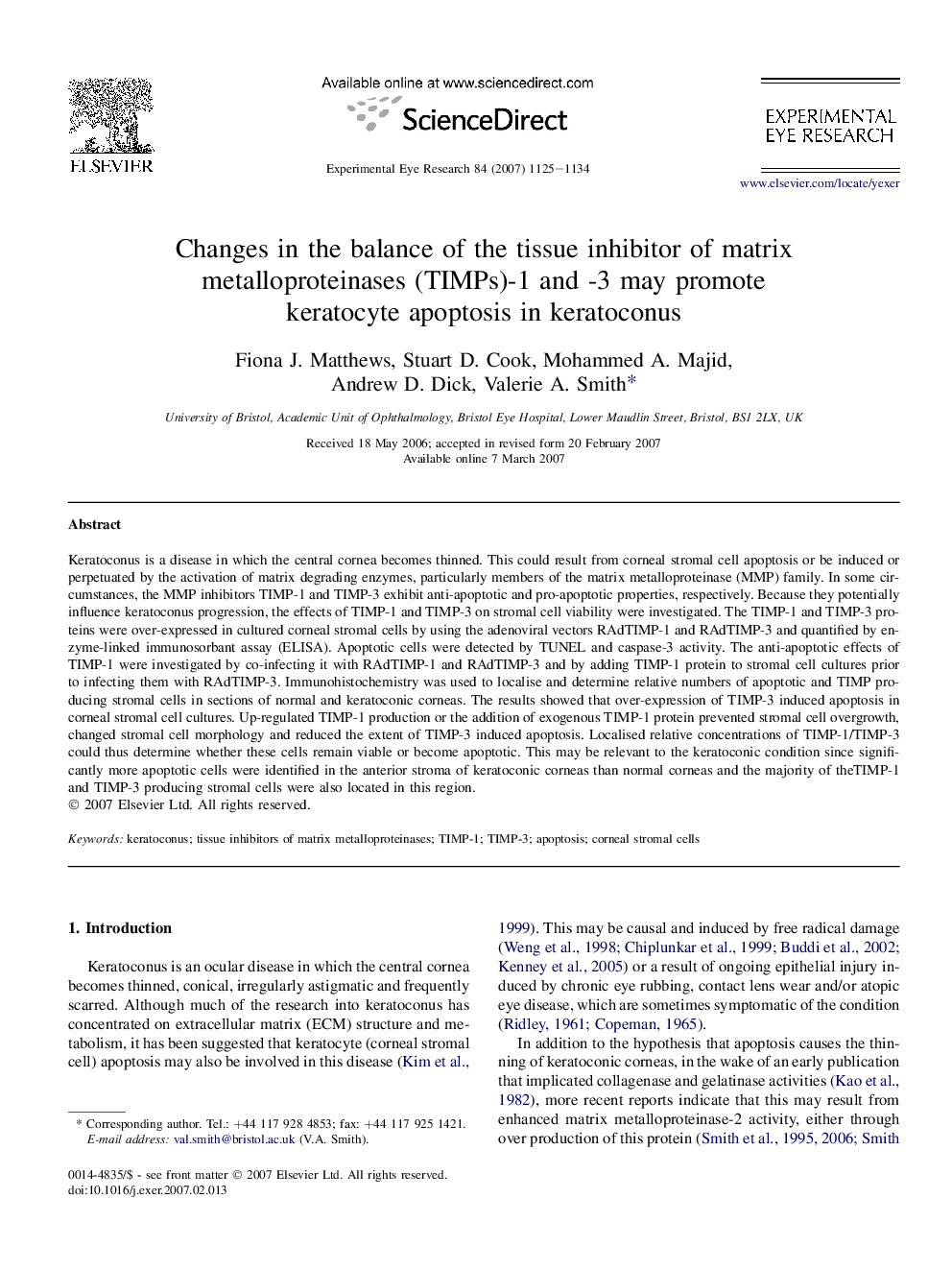| Article ID | Journal | Published Year | Pages | File Type |
|---|---|---|---|---|
| 4012433 | Experimental Eye Research | 2007 | 10 Pages |
Keratoconus is a disease in which the central cornea becomes thinned. This could result from corneal stromal cell apoptosis or be induced or perpetuated by the activation of matrix degrading enzymes, particularly members of the matrix metalloproteinase (MMP) family. In some circumstances, the MMP inhibitors TIMP-1 and TIMP-3 exhibit anti-apoptotic and pro-apoptotic properties, respectively. Because they potentially influence keratoconus progression, the effects of TIMP-1 and TIMP-3 on stromal cell viability were investigated. The TIMP-1 and TIMP-3 proteins were over-expressed in cultured corneal stromal cells by using the adenoviral vectors RAdTIMP-1 and RAdTIMP-3 and quantified by enzyme-linked immunosorbant assay (ELISA). Apoptotic cells were detected by TUNEL and caspase-3 activity. The anti-apoptotic effects of TIMP-1 were investigated by co-infecting it with RAdTIMP-1 and RAdTIMP-3 and by adding TIMP-1 protein to stromal cell cultures prior to infecting them with RAdTIMP-3. Immunohistochemistry was used to localise and determine relative numbers of apoptotic and TIMP producing stromal cells in sections of normal and keratoconic corneas. The results showed that over-expression of TIMP-3 induced apoptosis in corneal stromal cell cultures. Up-regulated TIMP-1 production or the addition of exogenous TIMP-1 protein prevented stromal cell overgrowth, changed stromal cell morphology and reduced the extent of TIMP-3 induced apoptosis. Localised relative concentrations of TIMP-1/TIMP-3 could thus determine whether these cells remain viable or become apoptotic. This may be relevant to the keratoconic condition since significantly more apoptotic cells were identified in the anterior stroma of keratoconic corneas than normal corneas and the majority of theTIMP-1 and TIMP-3 producing stromal cells were also located in this region.
